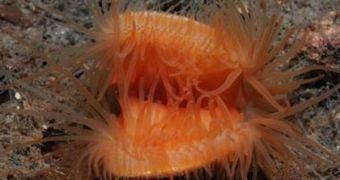A number of marine surveys conducted earlier this year revealed a total of 15 new species living in the ocean. Some of these creatures are remarkable in and of themselves, whereas others are elusive species, or ones thought to have disappeared long ago.
The surveys were conducted in waters around Scotland, and covered a total of 2,000 square miles (5,180 square kilometers). One of the most intriguing discoveries was that of a fish that has neither a brain, nor a face. The prehistoric creature is called Amphioxus.
Scientists with the Scottish Government catalog this species as elusive, The Independent reports. The new surveys were able to find it in waters off Tankerness, in Orkney. What is most outstanding about this animal is the fact it may be a descendant of the first species that evolved a backbone.
Neural impulses travel through a primitive nerve chord that lies where its spine should be. Other than that, there are no nervous systems components “installed” on this creature. Scientists are very happy about finally being able to study the creature.
Waters around the Small Isles also revealed 48-centimeter (18-inch) giant mussels, which experts believe have the largest sea shells in that sector of the Atlantic. The location of this species was also found to be the home of more than 100 Fan Mussel specimens.
The latter are interesting to scientists because they display threads that are so fine and sensitive that they can latch on to individual sands of grain. They look and act just like human hair, researchers add.
Clabbydhhu mollusks that can live in excess of 50 years were discovered near Noss Head, in Caithness. This species plays an important role in marine ecosystems, because it helps stabilize the sea floor at critical locations, and also provides shelter and food for a large number of other species.
“These surveys highlight that Scotland's seas and coasts are home to a truly amazing range of weird and wonderful wildlife,” says the WWF Scotland head of policy, Dr. Dan Barlow.
“By providing vital information on what lies beneath the waves, these surveys will help inform decisions on better ways to protect this important resource now and long into the future,” he adds.
Scottish Government officials say that the new data will help them make better decisions when it comes to preserving the biodiversity present in the waters around Scotland.

 14 DAY TRIAL //
14 DAY TRIAL //